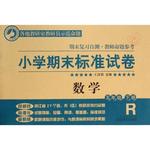题目内容
It was a village in India.The people were poor.However,they were not unhappy.After all,their forefathers had lived in the same way for centuries.
Then one day,some visitors from the city arrived.They told the villagers there were some people elsewhere who liked to eat frog’s legs.However,they did not have enough frogs of their own,and so they wanted to buy frogs from other places.
This seemed like money for nothing.There were millions of frogs in the fields around,and they were no use to the villagers.All they had to do was catch them.Agreement was reached,and the children were sent into the fields to catch frogs.Every week a truck arrived to collect the catch and hand over the money.For the first time,the people were able to dream of a better future.But the dream didn’t last long.
The change was hardly noticed at first,but it seemed as if the crops were not doing so well.More worrying was that the children fell ill more often,and,there seemed to be more insects around lately.
The villagers decided that they couldn’t just wait to see the crops failing and the children getting weak.They would have to use the money earned to buy pesticides(杀虫剂) and medicines.Soon there was no money left.
Then the people realized what was happening.It was the frog.They hadn’t been useless.They had been doing an important job—eating insects.Now with so many frogs killed,the insects were increasing more rapidly.They were damaging the crops and spreading diseases.
Now,the people are still poor.But in the evenings they sit in the village square and listen to sounds of insects and frogs.These sounds of the night now have a much deeper meaning.
(2010·辽宁,A)
1.From Paragraph 1 we learn that the villagers ________.
A.worked very hard for centuries
B.dreamed of having a better life
C.were poor but somewhat content
D.lived a different life from their forefathers
2.Why did the villagers agree to sell frogs?
A.The frogs were easy money.
B.They needed money to buy medicine.
C.They wanted to please the visitors.
D.The frogs made too much noise.
3.What might be the cause of the children’s sickness?
A.The crops didn’t do well.
B.There were too many insects.
C.The visitors brought in diseases.
D.The pesticides were overused.
4.What can we infer from the last sentence of the text?
A.Happiness comes from peaceful life in the country.
B.Health is more important than money.
C.The harmony between man and nature is important.
D.Good old days will never be forgotten.
1.C
2.A
3.B
4.C
【解析】
1.
解析 细节理解题。由第一段中“The people were poor.However,they were not unhappy.”可知,他们虽清贫但还算幸福。A项原文未提及;B项是后文所述之事;D项与第一段中的信息恰恰相反。
2.2】A
解析 细节理解题。由第三段首句“This seemed like money for nothing.”及其后叙述可知,村民们认为青蛙是无用却能让他们快速发财致富的东西。故选A。
3.3】 B
解析 细节理解题。由倒数第二段最后一句“They were damaging the crops and spreading diseases.”可知,由于昆虫增加,导致农作物损失,疾病蔓延,从而引起儿童患病,体质虚弱。
4.4】 C
解析 推理判断题。最后一段提到:村民现在仍贫穷,但在落日的黄昏,聚坐广场,聆听夜晚的昆虫叫与蛙鸣声——这些声音赋予人们更深刻的含义,那就是:人与自然的和谐相处。

 提分百分百检测卷单元期末测试卷系列答案
提分百分百检测卷单元期末测试卷系列答案 小学期末标准试卷系列答案
小学期末标准试卷系列答案